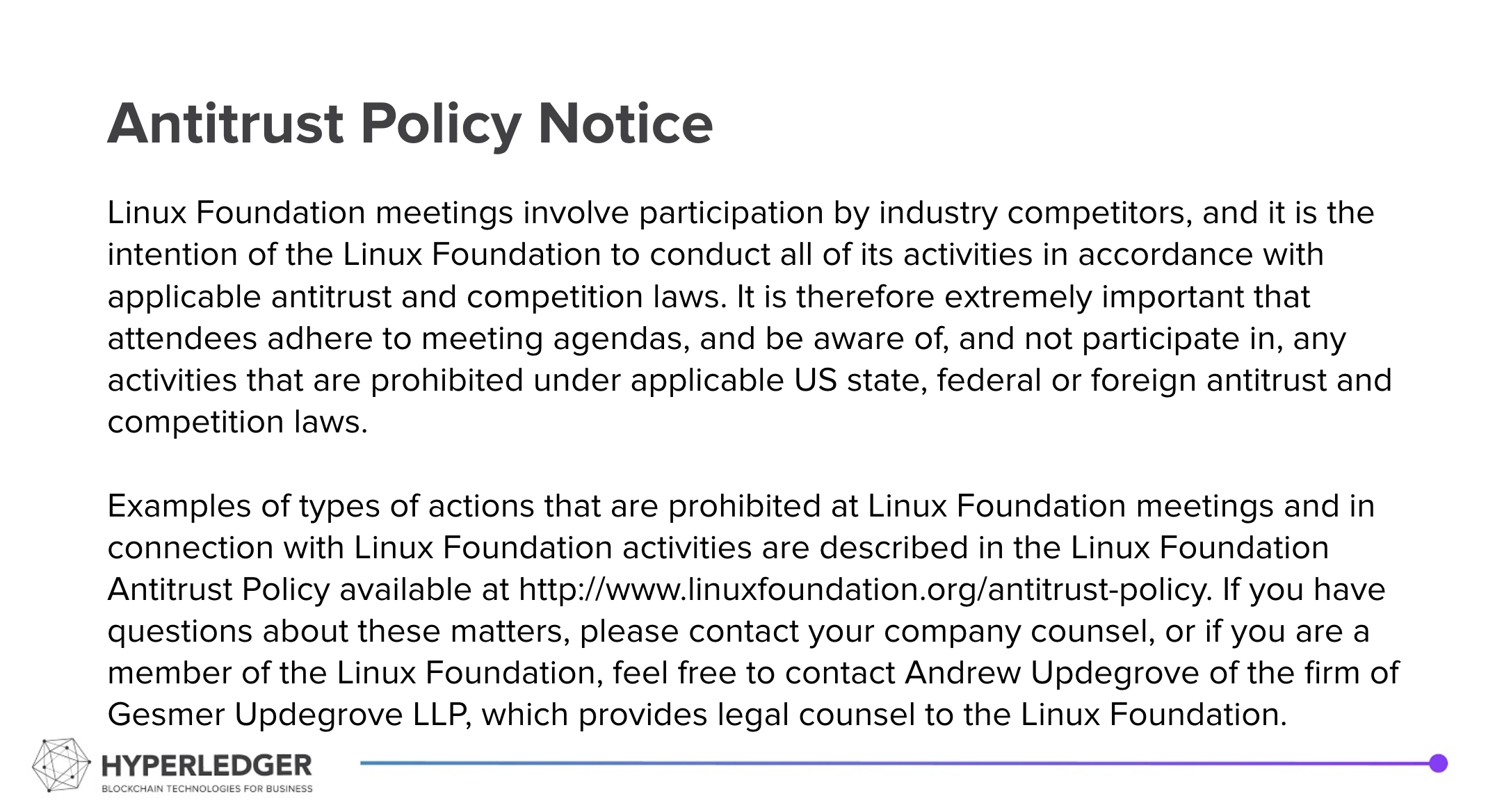Summary
| Excerpt |
|---|
|
Call Link: https://us02web.zoom.us/j/85188125213?pwd=UHRUVlgweFJ0T0g4SVdDUytYSkxJUT09
Recording of Call:
Notices:
This specification creating group operates under the Linux Foundation Community Specification License v1.0.
Hyperledger is committed to creating a safe and welcoming community for all. For more information please visit the Hyperledger Code of Conduct. |
|---|
Meeting Attendees
Stephen Curran (BC Gov / Cloud Compass Computing Inc.) <swcurran@cloudcompass.ca>
...
- Welcome and Introductions
- Announcements
- AnonCreds Workshop – May 31, 2023, 8:00 Pacific / 17:00 Central Europe
- Currently reviewing applications for a Hyperledger Mentorship to work on AnonCreds – the specification and implementation
- Any updates to the Agenda?
...
- Update on the AnonCreds V2.0 Working Group
- Next week: Presentation Data Models
- Presentation: A Dynamic Accumulator-based Revocation Schema, Nitin Singh, IBM Zurich Research
- PRs for review and merging
- Issues to Discuss – None.
- Checkin: anoncreds-rs implementation progress, requests
- Seems to be pretty stable right now – most effort is in using the implementation in various frameworks.
- Open Discussion:
Future Calls
To Dos:
- Issue to talking about what AnonCreds verifies and what is left to the issuer to verify.
- Issue #137 added regarding further investigation into what happens to the issuance data flow nonce(s) by Belsy – definition completed, to be added to the spec. Stephen Curran
- Issue #140 should WQL be allowed in a Presentation Request?
- WQL is supported currently in the Indy SDK, but not in the Aries Frameworks
- Should it be in the specification?
- If so, in what form. From Sam Curren — don't call it WQL if we do include it – just describe it.
- Not used and it is not clear there is a good reason to support it.
- Complicates the specification and the implementation.
- Decision:
- Not supported in the specification – let's keep it out in this version
- Revocation Interval
- Approach to determine if the holder used an acceptable RevRegistry – see this Issue comment
- Who calls the AnonCreds method to get the Revocation Registry from the ledger for verification
- Verifier
or AnonCreds?
- Verifier
- To set "validation" to true/false based on the RevRegEntry timestamp in relation to the revocation interval? Presentation
- Key points:
- 1. an RevRegEntry is “current” from the time it is written, to the time of the next RevRegEntry
- 2. “within the interval” is based on when a RevRegEntry is “current” (see 1.), not its timestamp.
- 3. AnonCreds or the Verifier (calling AnonCreds) should calculate “within interval” (using 2.) and mark verification true if the RevRegEntry used by the Prover is within the interval, else false.
- Dangers:
- False-Negatives: If a strict "timestamp used is between from, to" and not based on when a RevReg is "current" (per 2.), we will get "not verified" incorrectly.
- False-Positives: If we don't do any checking of the timestamp and the interval, the holder could incorrectly use an old RevRegEntry.
- Dangers:
- 4. General point: AnonCreds should return both a summary (true/false) and if false, additional data about why it was false.
- Decision – add an optional `at_from_ts` set of entries, one per NRP, that AnonCreds can use for determining if the holder_ts is within the Presentation Request interval.
- Backwards Compatibility
- PRs in (#82, #105) that seem to change public data structures – ones that are handled outside of AnonCreds and/or by two or more participants (issuer, holder, verifier)
- We want to retain compatibility with existing data – credentials that have been issued and the published AnonCreds objects on which they rely.
- That extends to business logic – e.g. the handling of the objects not just by AnonCreds, AnonCreds Methods and Aries Frameworks, but also by business applications built on Aries.
- Suggestion:
- Include in the specification a statement about backward compatibility
- Perhaps this is what Ankur had planned to do?
- Formalize what data structures will be expected by AnonCreds
- This is being done throughout the specification and verified against the current implementation.
- As needed support sending and receiving data in "old" and "new" formats, but (for now) always sending "old" formats.
- TBD if there are any such cases.
- Include in the specification a statement about backward compatibility
...

